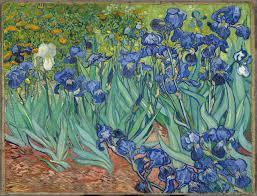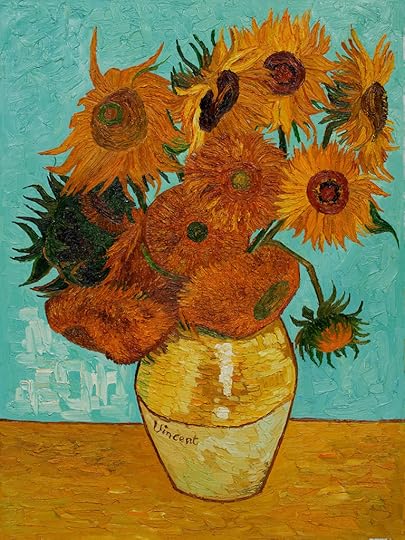Kate Larking's Blog: Anxiety Ink, page 40
February 11, 2016
Weighing In On Mental Health
There was a bit of a theme in Kateâs posts over January, and one in particular struck a chord with me. This one, Depression is  a Difficult Beast to Tame, in which she discusses her personal struggles with depression, especially lately. Her post happened to fall on Bellâs Letâs Talk Day, so mental health was really on my mind. That same week, on Friday, after I had a topsy turvy day of my own, I came across this bio of Janet Frame (I bolded the important in case you don’t want to read it all):
The fate befalling the young woman who wanted “to be a poet” has been well documented. Desperately unhappy because of family tragedies and finding herself trapped in the wrong vocation (as a schoolteacher) her only escape appeared to be in submission to society’s judgement of her as abnormal. She spent four and a half years out of eight years, incarcerated in mental hospitals. The story of her almost miraculous survival of the horrors and brutalising treatment in unenlightened institutions has become well known. She continued to write throughout her troubled years, and her first book (The Lagoon and Other Stories) won a prestigious literary prize, thus convincing her doctors not to carry out a planned lobotomy.
She returned to society, but not the one which had labelled her a misfit. She sought the support and company of fellow writers and set out single-mindedly and courageously to achieve her goal of being a writer. She wrote her first novel (Owls Do Cry) while staying with her mentor Frank Sargeson, and then left New Zealand, not to return for seven years.
The lobotomy section made me sick, as the idea of anyoneâs frontal lobe being played with does. And it made me mad âhell, the whole thing made me mad.

Irises, 1889 by van Gogh
Artists are weird, and thatâs me being really blunt about it. Mental health struggles are largely the norm, too, hardly the exception, in creative communities. Itâs likely how artists are so well suited to relaying emotion through words and visual means âweâre a too sensitive lot.
That though, that intuitive ability to connect to the world around us, is not weird. The opposite is weird as far as Iâm concerned. It baffles me that across history those who rubbed (and rub still) against the grain of ânormalâ are ostracized, stigmatized, and abused. Destroy what you donât understand at its finest.
Iâm not an open book. Iâm the type who struggles solo because thatâs how I am. I have a hard time reaching out. Part of me thinks itâs safer that way, though I know the opposite is true in most cases. That doesnât mean I want anyone to be like me, or to feel that they need to be like me. Iâd give anything to be as brave as Kate and tell people I feel like Iâm drowning. I applaud her new tactic to speak openly about her depression so that those around her can offer their support.
I do my best to focus on writing when I blog for Anxiety; Iâve deviated a bit today but I think Iâm also speaking to things the writing community is closely tied to. And we called ourselves Anxiety Ink for a specific reason. Besides, I really felt the need to weigh in âespecially after all the signs telling me to do so.
I want to conclude with my hokey advice:
Please, go out there and be sensitive. Write. Create. Be weird. Be sad. Be happy. Share. Talk. Be. And know you arenât alone in a sea surrounded by ânormal.â âNormalâ is a fallacy. Youâre your own normal.
Plus, the writing community -most artist communities- are super supportive! Even Janet Frame found a bevy of people to bolster her. And that is my positive end note.

Sunflowers, 1888, by van Gogh
Tweet
The post Weighing In On Mental Health appeared first on Anxiety Ink.
February 10, 2016
Shedding Hobbies, Having Fun Writing
One of my favourite podcasts on writing is Writing Excuses. I’m miserably behind on it at the moment, but that doesn’t stop me from loving the quick, digestible lessons and thought-provoking perspectives on though themes, especially dealt with by genre writers.
One episode I listened to a long time ago was Writing Excuses 5.8: The Excuses You’re Out Of. And it really stuck with me that sometimes you have to give up some things in order to get your writing done. Brandon mentions that he gave up television. They all mention counting various not-writing activities as work and that being an excuse. There are tons of different degrees of excuses in this podcast but I am going to stick to one for this post.

I gave up television in 2013. But I replaced with with online games and anime. Totally honest here.
In the last month, my favourite online game announced that it was shutting down. I had invested a lot of time into the game and, having it taken away by no active choice of my own, really stung. I had no control about keeping the game in play. I tried to transfer to the Japanese version of the game, which was still running, but I realized that it may end soon as well.
So, one of my coping mechanisms I came up with, was to twist up some of my favourite character stories and write them.
And then I stopped myself. My way of regaining the feelings I had when gaming…was to write. If that was the case, why was I gaming in the first place and not writing this whole time?!
I can go into a long list of excuses as to why I gamed. like I wanted the story fodder, I enjoyed the interface, the tactics met what I wanted to have in a gaming experience…but really, the game closing has been a gift. I have a lot of time back. And a motivation to get more words written. Because then I am in control of the story. I won’t have it ripped away from me.
So it’s time to get back to work.
Tweet
The post Shedding Hobbies, Having Fun Writing appeared first on Anxiety Ink.
February 8, 2016
Influences and Mashups
Until yesterday, I’d never read Pride and Prejudice. Although I’ve adored any and all film versions, I can’t claim it among my literary influences. And this is where I upset Elisa and confess that until yesterday, I’d never read any Austen at all.
So what brought me to break down and finally read A Classic? The movie Pride and Prejudice and Zombies. (Not the book. I honestly have no interest in the book. Yet.) It took a love story I adore and added women kicking ass.
Not that Lizzie Bennet has ever not kicked ass. The movie takes that quiet, inner power and parades it blatantly on the outside to decimate zombie hordes.
I already want to see it again.
Added bonus: I officially introduced my 18-year-old niece to the story of Pride and Prejudice. Now, she might be a little obsessed. I am the best of influences. ^_^
Mashups have become passé in the last few years. A trend that will change again and again. I appreciate that this particular mashup brought me to the source material. It helped me figure out a detail of a subplot I have never managed to get quite right in half a dozen drafts.
And if you adhere to the adage that no story is truly new and original, then all stories are mashups. It’s just that the stories to bear that badge pay more overt homage to their influences.
Tweet
The post Influences and Mashups appeared first on Anxiety Ink.
February 4, 2016
Rule Breaker
Here on Anxiety we share a lot of writing rules, whether itâs directly in posts or on our social media pages. Some are ones weâve heard a million times from a million sources that we either agree or disagree with, or fall somewhere along those lines.
One Iâve heard a few times from a number of sources is: If youâre writing a series, write the first one, write a few chapters of the next one, and just do an outline for the third.
The idea is if you were to go beyond writing that first book, then get edits back requesting you change really paramount parts that are foundational for your next book, youâd have wasted a lot of your time and energy. Of course, you donât have to make those changes, as long as you want to get dropped by your publisher (a worst case scenario, but one to keep in mind). Indies definitely have more freedom in this regard, and who knows which would make the better book faced with the same story.
Logically, this rule makes sense. No writer wants to waste their precious time. Have I listened to this rule? I thought about it. Then said screw it.
Iâm about halfway through writing the second book in the series Iâm working on. I donât know if itâs a mix of feeling unburdened because the world building is largely taken care of in book one or I feel more confident writing it because I actually completed a book from start to finish âsomething Iâve never done before.
Part of me is glad to have ignored the rule because Iâve learned things about my main character in book twoâs situations that I hadnât even thought to wonder about in book one. And these realizations actually need to be hinted at in the previous story to make the first richer. Iâve also let myself show more of my characterâs daily grind and introspection âIâve finally let myself wander!â which also needs to be showcased better in book one because it adds so much to the world and character.
The other part of me is dreading the work I know is coming my way. Iâve got a lot of extra writing to do, not to mention backtracking, and Iâm certain there will be much more in my future since an editor hasnât even gotten involved yet. Still, I wouldnât trade any of what Iâve learned.
I highly recommend listening to rules laid out by those who are extremely successful and know what theyâre talking about. But until you have solid understanding of your process -Iâm definitely still a clueless beginner struggling through learning- just do what you need to do and keep the ârulesâ in the back of your mind.
Writing is all about finding out what works for you. Weâre two and a half years in here and I still feel like a fish out of water. Practice. Practice, practice, practice. Just keep writing. Thatâs all I can tell myself, and you.
Tweet
The post Rule Breaker appeared first on Anxiety Ink.
February 3, 2016
Learning from the Artist about Creative Perfectionism
Being in the comic and graphic novel industry is still really new to me. When asked what I write, I still forget that I write comics, unless I’m in a comic-specific meeting setting. I list my personal projects when asked; cyberpunk, spacepunk, fantasy, queer fic, and a little poetry. Oh, right, and a comic.
Even as I am slowly acclimating to being a comics writer, there is a lot that I’m learning about creative perfectionism from the Crash and Burn artist, Finn Lucullan.
I have to admit, when I started on the project, I wasn’t convinced entirely that I wanted to be working on a comic. But Finn convinced me to try it (or didn’t give me a choice about leaving, one or the other). Finn’s enthusiasm for the work reminded me a lot of why I loved writing years ago, a feeling that I had lost over the years of conferences and crits and edit and struggles to move from being a shitty writer to being one with some sort of calibre. So I said yes to the project, if only to be around that enthused feeling for one of the things I worked on.
And then I put in a shitload of work. Wrangling ideas and sorting them into some sort of order. Outlining. Edits. Setting publishing dates. Meeting those dates.
One of the biggest projects we faced is that the first bit of the comic wasn’t at the image resolution we needed it to be. That ran smack against Finn’s firm “Don’t look at old work” rule. Their ability to continually produce is reliant on this. Else wise, anyone with a perfectionist streak will refine until they die and never show their work–art, writing, whatever it is–to a soul. We did not want to go back to the older work and nudging it around to make it work. The resolution increases happened, but it was a tough haul.

I gave Finn the heads up about this post and they said, “I just feel like I’d rather be making new mistakes atop my giant pile of finished work than trying to perfect one thing forever.”
That would have been where my fiction writing was going. Edited to hell and never shown to a soul.
Writing will never be perfect. I will never be looking back on my very first works with absolute confidence in the writing ability and descriptions and plot choices–because NO ONE DOES.
So I’ve taken steps outside of my comfort zone. I’m in a small crit group where I sacrifice a few pages at a time, forcing me to eke out pages every week between book buying work and comic work. And I take the feedback and apply it. I’m no longer in the zone where feedback is personal. My work is separate from myself. Every word I put to paper separates it from me. And I want to finish it.
Tweet
The post Learning from the Artist about Creative Perfectionism appeared first on Anxiety Ink.
February 1, 2016
Focus
Over the weekend, I had a lunch date with a friend who is a theatrical badass. (Was that a term? Well, now it is.) I’ve lucked out having him as a director over the last couple years, and he is an absolutely brilliant actor. I want to act with him so badly.
Point is: lunch was amazing.
On here, we occasionally extol the virtues of having a community of creatively-minded people. As I live about an hour’s drive away from what many people might consider a quaint attempt at civilization (the city of Bangor; Ellsworth is closer and technically a city, but a city with a single half-empty strip mall and without a single building that I can think of with more than four floors), it requires significant effort to meet up with artist-friends at all, let alone on something resembling a regular basis. Internet communities are wonderful things, but they don’t entirely replace my need for a physical community.
Internet communities provide creative energy and momentum, but physical community adds focus to that energy. Maybe that’s one reason why I love theatre so much.
I feel like I’ve been going in circles for ages, even when I am getting words on the page (and the fact that this has been an unusually difficult month has not helped), but after our lunch date I know what I need to do to feel like I’m moving forward. Plus, I finally have the focus to sit down and do it.
Whatever happened to salons? Not where you go to have your hair styled, but a gathering of people to talk and exchange ideas. If I lived in Calgary, I would totally try to talk Kate and Elisa into starting an Anxiety Ink salon for artists of all kinds.
For now, I have another hang out date set for next weekend. Focus is a fickle thing, especially when it has deserted me for so long, so I think this timing will be just about perfect.
Tweet
The post Focus appeared first on Anxiety Ink.
January 28, 2016
Script Writing, Or Using Drama Tools to Improve Your Dialogue
While trolling the internet for interesting articles to share via Anxietyâs Facebook and Twitter, I came across this gem: How to Write Arguments with Maximum Punch.
While I feel like step 1 was a given, and I love the idea of step 2, step 3 is the one I want to discuss. Hollingsworthâs tip to script your argument and remove all the extraneous parts, like tags, body language, and description is an ideal way to see the core of your argument. Really, the core of any major dialogue scene.
The funny thing is, I already have a tendency to do this when Iâm drafting dialogue. If Iâm in the middle of an important scene, nothing else is allowed to intrude on what the characters are saying to one another, I need to see the conversation in its purest form in order to make sure itâs doing what it needs to when I come back and edit. I donât usually add any major detail until my third edit when Iâm happy the dialogue is working âat that point I shouldnât have to add much to these scenes because dialogue is always supposed to do more.
This is when having a drama background comes in really handy. I donât have one, by the way, but lucky for me script writing was part of the trifecta taught in my first university creative writing course. And I still have the textbook, Three Genres, by Minot; a book I highly recommend although it is rather pricey.
No, Iâm not an expert after maybe a month of learning script writing and writing one play. However, English isnât all about reading short stories and novels. Iâve read many plays. From Shakespeare, to Dryden, to Behn, to Hamilton, and I could go on, but Iâll stop. And the beauty of reading Shakespeare, and Iâve read a helluva lot of Shakespeare, is that he provides barely any stage directions. You have to read his dialogue carefully to follow the movement of the play.
Learning to do dialogue well is hard. You have to read a ton, especially outside your comfort zone, and you have to write (and rewrite) a lot of it. Thankfully it pays off in the end.
So I recommend scripting most if not all of your dialogue the first time around, especially the most important scenes, like arguments between characters. Iâve never gotten complaints about my dialogue and thatâs what Iâve always done.
What do you think?
Tweet
The post Script Writing, Or Using Drama Tools to Improve Your Dialogue appeared first on Anxiety Ink.
January 27, 2016
Depression is a Difficult Beast to Tame
Probably the hardest thing I will ever face in my life has already been with me for seventeen years: depression.
Currently, I’m in pretty deep. Getting up in the morning is hard. Moving is hard. I’m constantly sore and sick and can’t concentrate on anything.

The worst part is everything I find enjoyable, my brain twists into blame. Blame for liking things that some unnamed, blurry others might find immature. Blame for doing something–like writing–that a dark place in me is sure won’t amount to anything. Blame for not doing something more productive with my time.
But even when I switch to doing something else, something that previously seemed “more productive”, the internal dialogue starts all over again with the new task.
Depression is difficult to deal with. Even if you have one eureka moment, one thought or realization that brings everything into focus and comforts the whole of you, offering you strength, that moment is fleeting. Depression comes back again in either a few seconds or a few hours: perhaps weaker than before and having to restart tearing down the foundation you have built yourself, perhaps even stronger with some bigger demon to send into your thoughts like a battering ram.
I’m doing something different when facing depression this time around. I am being vocal. I am letting my friends know that I’m in the dark and I need help. At first, it feels like admitting this cuts my own feet out from underneath me. I feel like telling others will show them how weak and invaluable I am and will lead to me being discarded. But there is a merciful place in me that knows that people who would judge me or leave me when I am down right now–they are not the people I want by my side even when I am up.
So, to whoever is reading this, thank you for listening. Thank you for reading what I’ve exposed about my own vulnerability. For those who support me, or those who support others who are similarly afflicted, thank you. For those who face the battle, too, please know that you do not face the beast alone.
Tweet
The post Depression is a Difficult Beast to Tame appeared first on Anxiety Ink.
January 25, 2016
#writerproblems
Life gives us inspiration. It gives us experiences to draw from – story fodder. But we don’t always have to like it.
My brother-in-law – my sister’s husband – passed away a little more than a week ago after a long drawn out fight with cancer. I’m still processing it, and likely will be for a while.
I wasn’t super close with him (the six hour drive made visiting an infrequent event), but he and my sister had been together for eleven years. Maybe if we had been closer, I would feel less mercenary.
All experiences feed writing, and this is no different. Events like this tend to provide an inordinate amount of story-fodder.
Giving myself permission to be ok with that is something else entirely because it feels like I’m profiting from misery. Except that my brother-in-law would be ecstatic to have helped my writing in some way. He was pretty fantastic like that.
Sometimes hashtags just say it best: #writerproblems
Tweet
The post #writerproblems appeared first on Anxiety Ink.
January 21, 2016
âIâm on a timer.â
Late last month it was suddenly time to start nagging my fellow writing group members about content for our newsletter. Christmas was behind me but New Year’s Eve was starring me in the face. So I suggested a topic I knew would hit home: How do you keep productive during the holiday season? People responded far better than I expected, so I thought Iâd give the question a whirl.
Iâm the person who avoids people during the holidays. Itâs what I do. Iâm usually happiest solo with mini bouts of human interaction. Sometimes saying, âI have work to do,â isnât enough to let me escape without a lot of heckling, so I developed a new strategy.
Both of my parents played sports growing up, my dad the hockey wiz and my mom the softball champ. While I never did join a team, I did inherit their athleticism and competitive streaks. Weâre a weird bunch, but in our household if someone says, âIâm on a timer,â that means theyâre competing against a clock and want to be left alone until the buzzer sounds. Theyâre aiming to win so get out of the way.
And the funny thing is we all really respect that phrase.
Now if Iâm writing or sitting at my desk working on something, I say to whoever happens to be interrupting, âSorry, Iâm actually on a timer,â and they let me get on with it without a lot of questions. Sometimes you have to play to a personâs competitiveness in order to be left alone. Itâs yet another reason writing in timed spurts serves me well.
Outside the house it doesnât really work, but you canât win them all. And for the record, Iâm usually working against a timer because it aids my productivity.
Now, how do you stay productive during the holiday season?
Tweet
The post âIâm on a timer.â appeared first on Anxiety Ink.
Anxiety Ink
- Kate Larking's profile
- 53 followers




